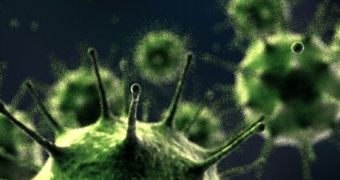Presently, scientists working with the Oregon State University are trying to figure out whether or not microbes could be used with maximum efficiency in order to help drilling companies extract more oil from the underground.
Moreover, they wish to determine if the very same microorganisms could help manage oil spills more effectively.
Apparently, this technology, known as “microbial enhanced oil recovery,” has been around for quite some time now.
However, oil drilling companies do not use it all that often – or simply do not use it at all – because it is rather costly and fairly unpredictable, meaning that nobody can say for sure what the outcome will be.
The official website for the Oregon State University explains that microbial-enhanced oil recovery basically refers to having microbes injected into a well from which oil has been previously extracted using more “conventional” methods.
Once in the well, the microbes are fed with sugary compounds in order to encourage their growth. As they get bigger and bigger, these microbes can clog some of the pores in the wells and act as surfactants, allowing for more oil to be extracted.
Professor Dorthe Wildenschild explains how, “By clogging up some pores and helping oil move more easily through others, these approaches can in theory be used with water flushing to help recover quite a bit more oil.”
However, “It’s complicated, you have to use just the right microbes, and feed them just the right foods, to accomplish what you want to do.”
Oregon State University scientists are presently looking into how to boost the efficiency of this technology, while at the same time hoping to find ways of making it a much more reliable one.
Should they succeed, microbial-enhanced oil recovery could also be used for environmental purposes, either when accidental oil spills occur or perhaps even when certain harmful chemical compounds make their way into the natural world.

 14 DAY TRIAL //
14 DAY TRIAL //